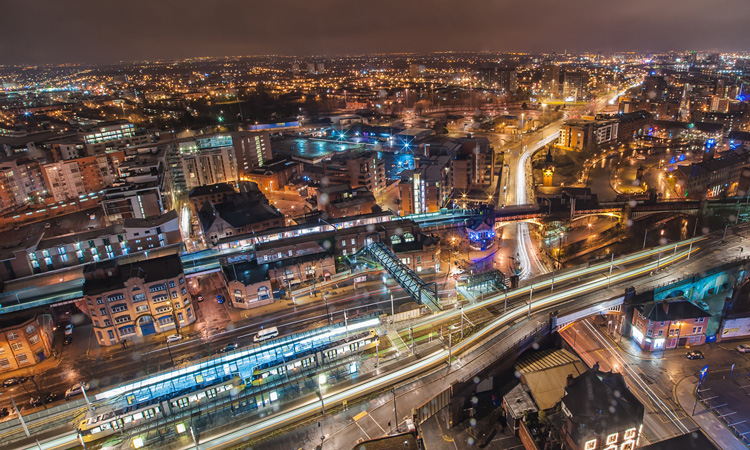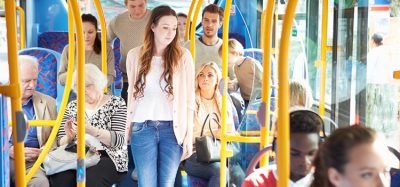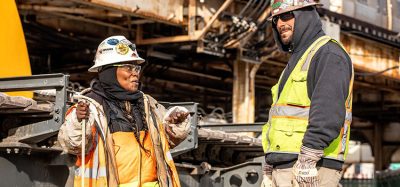Greater Manchester lays out plans to build back greener
- Like
- Digg
- Del
- Tumblr
- VKontakte
- Buffer
- Love This
- Odnoklassniki
- Meneame
- Blogger
- Amazon
- Yahoo Mail
- Gmail
- AOL
- Newsvine
- HackerNews
- Evernote
- MySpace
- Mail.ru
- Viadeo
- Line
- Comments
- Yummly
- SMS
- Viber
- Telegram
- Subscribe
- Skype
- Facebook Messenger
- Kakao
- LiveJournal
- Yammer
- Edgar
- Fintel
- Mix
- Instapaper
- Copy Link
Posted: 23 July 2020 | Sam Mehmet (Intelligent Transport)
Greater Manchester leaders have detailed plans for its green recovery from the coronavirus pandemic and to accelerate the region’s 2038 zero carbon ambitions, including a Clean Air Plan and a set of minimum standards for taxi and private hire services.


Greater Manchester leaders have unveiled plans to accelerate the city-region’s 2038 zero carbon ambitions, build a greener economy and deliver a long term plan for development.
Later in 2020, businesses, residents and elected councillors across Greater Manchester will have the chance to input on Greater Manchester’s Plan for Homes, Jobs and the Environment, the Spatial Framework, as well as key elements of the Clean Air Zone and to set minimum standards for taxis and private hire vehicles licensed in the city-region.
Mayor of Greater Manchester, Andy Burnham, said: “Greater Manchester has always been a place of progressive thinking, where we work together to achieve our potential. We are now taking action to deliver real clarity about where we are going as we emerge from this crisis.
“We have an unprecedented opportunity to build back cleaner, greener and better in Greater Manchester following the coronavirus pandemic, and we want this future to be shaped by the people who live and work here.
“These plans will allow us to progress our plans to achieve our long-term ambitions, working together across our 10 local councils, to build a strong recovery while reducing inequalities.”
Clean Air Plan
The Greater Manchester Clean Air Plan aims to bring nitrogen dioxide (NO2) air pollution levels from road vehicles within legal limits by 2024 at the latest, as directed by Government. The proposals, which include the largest Clean Air Zone outside London, include measures to reduce emissions from the most polluting commercial road vehicles, with a package of financial support to encourage businesses to switch to cleaner, low- or zero-emission models.
In response to the Clean Air Plan proposals, Government has already committed £41 million to support Greater Manchester businesses, sole traders and the voluntary sector to help upgrade to cleaner commercial vehicles. These vehicles would not be liable to pay a daily charge when a Category C Greater Manchester-wide Clean Air Zone is introduced in spring 2022.
Leaders are also working with government to secure more than £110 million in further financial support for those businesses and organisations affected by the Clean Air Zone.
Further analysis and modelling of proposed daily charges for non-compliant vehicles has suggested that the charges should be adjusted to more effectively encourage affected business to upgrade to cleaner vehicles. Following this work, the proposed daily charge for Heavy Goods Vehicles (HGVs), buses and coaches has been reduced from £100 to £60 per day from the introduction of a Clean Air Zone in 2022, as analysis showed this would deliver very similar upgrade responses and benefits.
Councillor Andrew Western, Greater Manchester Green City-region Lead, said: “We want everyone in Greater Manchester to enjoy better, secure standards of living, in a city-region that puts lives and living at the heart of everything we do.
“The last few months have brought about a reduction in road traffic and a massive increase in cycling and walking journeys, and we should grasp this these benefits to help shape a recovery that is green and sustainable.
“We know that people want to see further improvements to cleaning up our air, and we are committed to doing this as quickly as we can while supporting our businesses, to make sure they can upgrade to cleaner vehicles ahead of the introduction of the proposed Clean Air Zone.”
Minimum Licensing Standards
Alongside the Clean Air Plan, the city-region’s 10 local authorities have agreed to collectively develop a common set of minimum standards for taxi and private hire services covering the whole of Greater Manchester.
Recognising the important role that the region’s taxis and private hire vehicles play in the transport network, plans to introduce common minimum standards across the city-region’s 10 local authorities aim to help provide high-quality services for residents and visitors.
Standards would cover drivers, operators and vehicles, and “go further and greener” by including a step-by-step pathway to reducing harmful emissions from taxis and private hire vehicles. The aim is to have an entirely zero emission taxi and private hire fleet across Greater Manchester by the end of the decade.
For drivers this would include common standards on criminal record checks, local area knowledge tests, English language skills and driving proficiency. For vehicles there would be a set standard on vehicle emissions, ages, colour, common livery, the use of CCTV, and accessibility. Operators would also be subject to criminal record checks and to follow stringent booking processes.
With plans for an emission-free fleet across the city region by the end of the decade, Greater Manchester will look to minimise the impact on the trade and incentivise the switch to electric or low carbon vehicles while meeting Clean Air Plan targets.
As well as funding support to move to greener vehicles, Greater Manchester is proposing a ‘Try Before You Buy’ scheme for Hackney carriage drivers to test-drive electric taxis, and a network of taxi-only rapid electric vehicle charging points.
Related topics
Air Quality, Fleet Management & Maintenance, Infrastructure & Urban Planning, Public Transport, Sustainable Urban Transport, Transport Governance & Policy
Related cities
Greater Manchester
Related organisations
Greater Manchester Combined Authority (GMCA)
Related people
Andrew Western, Andy Burnham








